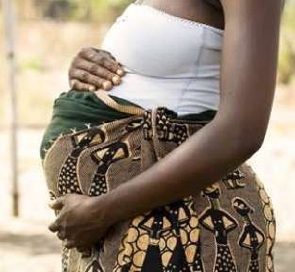Introduction
According to Yale Medicine 1 , surrogacy is simply a process where a woman carries and delivers a child for a couple or individual. The free encyclopedia, Wikipedia 2, also defines surrogacy as an arrangement, often supported by a legal agreement, whereby a woman agrees to deliver for another person or people, who will become the child's parent (s) after birth.
Generally, people may seek surrogacy services when pregnancy is medically impossible, where there is risk of pregnancy which is dangerous for an intended mother or when a single man or a male couple wish to have a child.
There are two (2) main types of surrogacy, namely, traditional or gestational. The main difference between the two (2) types is the genetic origin of the egg. The traditional surrogacy also known as partial, natural or straight surrogacy is the process where the surrogate’s or biological mother’s egg is combined or fertilized with the intended father’s or donor’s sperm. Generally, insemination of the surrogate can be through sex, mainly either natural insemination or artificial insemination.
In this case the surrogate will share Deoxyribonucleic Acid (DNA) with the child and will be the genetic mother.
Gestational surrogacy also known as host or full surrogacy occurs when an embryo
created by in vitro fertilization technology is implanted in a surrogate (ibid).
There are several forms of gestational surrogacy which includes but are not limited to the following:
The embryo is created using the intended father's sperm and the intended mother's eggs
The embryo is created using the intended father's sperm and a donor egg
The embryo is created using the intended mother's egg and donor
sperm.
A resulting child from gestational surrogacy is largely genetically unrelated to
the surrogate. The gestational surrogacy appears to be the most common form of
surrogacy which provides the most solid legal protection for both intended parents and the surrogate.
Beside the above 2 types, surrogacy may also be classified as commercial or altruistic. The United Kingdom Law Commissions have recently described 'commercial surrogacy' as surrogacy in which all the following apply: surrogates are paid a fee in addition to their out of pocket expenses, intermediaries which match and manage surrogacy for profit and agreements made between parents and surrogates which are legally enforceable.
The United Kingdom Law Commissions also stated that an 'altruistic
surrogacy means a surrogacy framework which limits what can be paid to surrogates to no more than their out of pocket expenses. This type of surrogacy further has restrictions on what intermediaries can be paid, and/or if surrogacy agreements are not legally enforceable.
Ghana's legal framework on surrogacy
Until the One Thousand and Twenty-Seventh Act of the Parliament of the Republic of Ghana entitled Registration Of Births and Death Act, (ACT 1027) 3 was
passed and assented on 6 th October, 2020 by the President of the Republic of Ghana, there seemed to have been little legislation on surrogacy in Ghana.
The ACT 1027 provides the framework for the Registration Of Assisted Reproductive Births and Related Matters which includes surrogacy.
Section 48 OF ACT 1027 defines surrogacy as an arrangement where:
An embryo formed from an egg and sperm of persons other than a surrogate
mother and the partner or husband of that surrogate mother is implanted into
the surrogate mother; or
A gamete from a person other than the partner or husband of a surrogate
mother is introduced into the surrogate mother to fertilize the egg of that
surrogate mother, to enable the surrogate mother carry the foetus for the period
of the pregnancy and give birth at the end of the period on behalf of another
woman or the intended parent.
A surrogate mother is defined by ACT 1027 as a woman who has accepted under a
surrogacy agreement to carry a foetus for the period of the pregnancy and give birth to a baby at the end of the period on behalf of another woman or the intended parent.
It appears that the ACT 1027 contemplates the two (2) main types of surrogacy,
namely; traditional and gestational. However, it seems ACT 1027 is reticent on both commercial and altruistic forms of surrogacy.
Procedure for surrogacy in Ghana
The law states that an intended parent may engage the services of a person to give the intended parent a child through surrogacy. The engagement or arrangement may be by an agreement entered by the parties.
The intended parent may, within twelve (12) weeks after introducing an embryo or
gamete into the surrogate mother, apply to the High Court for a pre-birth parental order to allow either the intended parent or surrogate mother, or (b) both parents of a child to be named as the parent of a child born through surrogacy or any other assisted reproductive birth if the birth occurs within twenty-eight (28) weeks of the order of the High Court.
The pre-birth parental order is defined by ACT 1027 as an order from the
High Court naming a person as the legal parent of a child who is yet to be born.
Where the High Court is convinced of the evidence of parentage and the existence of a surrogacy, the High Court shall issue a pre-birth parental order naming the legal parent of the unborn child, the intended parent, the surrogate mother and the hospital where the child is born, if the birth occurs at a hospital facility.
A copy of the order shall be issued to the District Registrar of the District in which the child will be born. However, a woman who gives birth to a child in the absence of a pre-birth parental order from the High Court naming another person as the mother, shall be registered as the mother of the child.
Where a child is already born without a pre-birth parental order, an intended parent or surrogate mother may apply to the High Court for a post-birth parental order or substitute parentage order. The post-birth parental order is defined as an order from the High Court naming a person as the legal parent of a child who is already born.
The substitute parentage order is also defined as an order from the High Court naming a person as the legal parent of a child born to another person who, until the determination of the Court, might have been recognized as the parent of that child.
The post-birth parental order and substitute parentage order, in substance, are in the form of an adoption proceeding and shall be lodged at the High Court at least twenty -eight (28) days after the birth of the child but not later than six (6) months after the birth of the child.
The Lacuna
It appears that ACT 1027 does not provide sufficient regulatory framework for the end-to-end process and all the stakeholders in the ecosystem. The main focus of ACT 1027 is to provide the framework for only the registration of assisted reproductive births and other matters.
There seem to be a lacuna in the legal framework governing infertility treatment and medical services such as embryo storage as well as the proliferation of many fertility clinics offering assisted reproductive births and related solutions.
Again, it does not seem to provide any legal requirement or elements for entering into a valid surrogacy arrangement or agreement.
It presupposes that the CONTRACT ACT 4 and other general elements required for constituting a valid contract would then be applicable. That is to say offer, acceptance, adequate consideration, intention to create legal relationship, capacity and legality may be considered in the contract.
The issue about capacity is an important element for entering into a legal contract, particularly in such special contracts like this arrangement. SECTION 22 of ACT 1027 states that 'an intended parent may engage the services of a person to give the intended parent a child through surrogacy'.
The intended parent means a person who desires to be a parent through surrogacy or any other assisted reproductive birth arrangement.
Surrogate mother also means a woman who has accepted under a surrogacy
agreement to carry a foetus for the period of the pregnancy and give birth to a baby at the end of the period on behalf of another woman or the intended parent.
The foregoing provisions do not clearly establish an age limit for surrogate mothers and intended parents. Therefore, the contract age of eighteen (18) years may be presumed to be applicable.
In Kenya 5 , Surrogate Agencies generally prefer surrogates with children and between the age group of 23 to 40 years. This is because at this age the
surrogates will be mentally and physically matured for the process.
Surrogate.Com 6 cited the recommendations from experts at the American Society for Reproductive Medicine which stated that: “Carriers must be of legal age and preferably between the ages of 21 and 45 years...”.
Again, Simple Surrogacy. Com 7 has also outlined the following requirements to qualify as an Intended Parent; honesty, no criminal history, able to pass a
background check, be between the ages of 21 to 60 years, be in a stable living situation and have the support of a spouse. Based on the foregoing, it is imperative to provide some regulation in this perspective.
Additionally, it appears that ACT 1027 does not have any residency or citizenship requirement for surrogate mothers and intended parents. This in no doubt will position Ghana to attract persons from abroad since the country will appear to be an attractive destination for fertility tourism.
The surrogacy laws of Kenya 5 which appears to be similar to ACT 1027 is confronted with attracting couples of same sex or different sex from other jurisdictions who seek to fulfil their incomplete family by bearing children.
Similarly, it seems that there is little about commercial and altruistic forms of surrogacy which portends danger for disputes if not properly regulated.
It is important to review some few cases in other jurisdictions about the vexed matters of surrogacy to learn lessons and highlight possible challenges we may encounter if not well regulated.
In a FASANO CASE (1999), a New York case where one Donna and Richard Fasano
contracted with a fertility clinic to implant two (2) of their fertilized eggs into her uterus.
Nine (9) months later, she had twins. One was white and the other black. The clinic had mixed up its fertilized eggs, implanting one of theirs and one belonging to a black couple. The Fasanos eventually had to turn over the baby to its biological parents, but sued for visitation rights. The court decided that Donna's motherhood was only 'nominal' and denied the Fasanos visitation.
The biological parents sued the fertility clinic for negligence. In RE X AND Y [2008], twins who were born to British parents through Ukraine surrogacy ended up being made stateless and parentless by the Law The High Court had to step in to make the first ever parental order following international commercial surrogacy.
Also, in RE L [2010], there was a dispute about commercial contract and
the High Court relying on the welfare principle of the child made orders for commercial surrogacy payments.
In M. versus human fertilisation and embryology
Authority (HFEA) [2015], HFEA refused the export of eggs from the United
Kingdom to the United States of America to try to conceive a grandchild, the Court of Appeal allowed the appeal for the export.
Conclusion and recommendation
The ACT 1027 appears to legalize surrogacy but has not provided sufficient legal
regulation of the entire ecosystem. Unlike adoption which is well regulated requiring the following: evidence of marriage, medical certificate, police clearance, evidence of employment, two (2) reference letters, national identification, spousal consent, photograph and video recordings of the home of the applicant, among others, it is not the same with surrogacy. The ACT 1027 provides for the registration of assisted reproductive births and does not in any form amount to regulation.
The Member of Parliament (MP) for North Tongu, Samuel Okudzeto Ablakwa, on
the floor of Parliament of the Republic of Ghana one time raised an urgent need for legislation to regulate assisted reproductive technologies before ACT 1027 was passed. But it does not appear that ACT 1027 answers the MP’s call.
It is recommended that a detailed regulation to govern fertility and embryology in the Country be enacted. There is also the need to establish a regulatory body like an authority with an oversight responsibility for the enforcement of fertility and embryology regulations.
We need specific regulations on the creation, care and use of human embryos outside of the body of a mother (ex vivo), the collection, care, and use
of donated human sperm and eggs (donated gametes), and the storage of these
human gametes and embryos.
Until there is a comprehensive regulation, those who intend to engage surrogate
services are entreated to ensure that there is a properly negotiated and well drafted agreement to avoid the associated pitfalls. Thereafter, the appropriate pre-birth parental order should be obtained from the High Court before birth or post-birth parental order be obtained after birth within the stipulated statutory timelines.
Opinions of Monday, 13 March 2023
Columnist: Limann A. Mohammed















